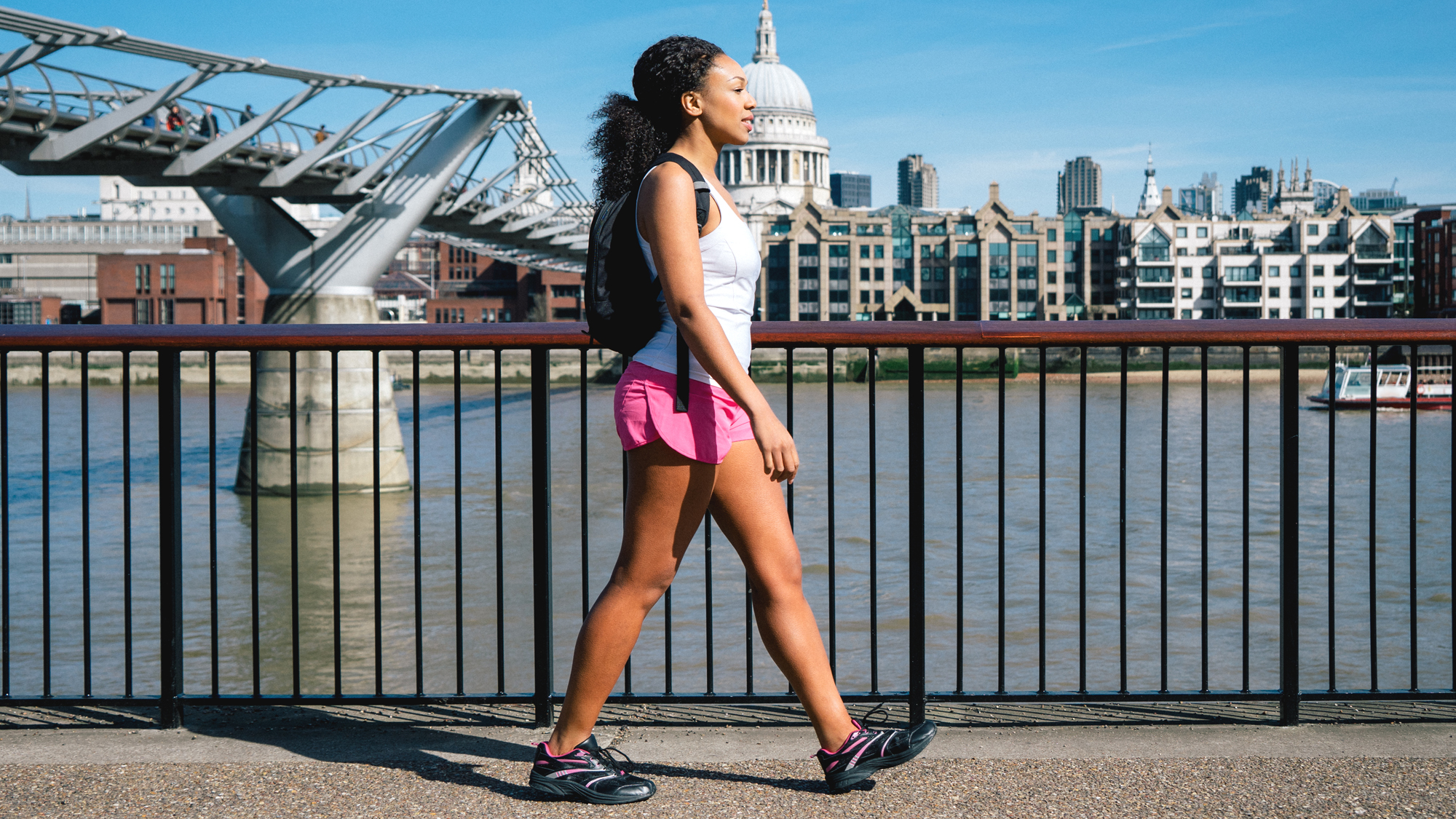Walking 100 steps a minute is the key to sustainable weight loss, say researchers
If you want to drop pounds, walking 100 steps a minute is a low-impact way to reach your goals


Start your week with achievable workout ideas, health tips and wellbeing advice in your inbox.
You are now subscribed
Your newsletter sign-up was successful
Walking is a great way to add some physical activity into your day; it's free and perfect for beginners to ease into exercise. If your goal is to drop pounds, though, researchers have found walking at 100 steps per minute is the most effective pace to lose weight.
Many people turn to walking to lose weight because it's an accessible way to start moving and burn energy. You can take things at your own pace—a stroll, power walk, or something in between—and integrate it into your day by walking to the store or office.
Generally, if you want to start losing weight, you'll need to set a pace that'll raise your heart rate, but it's difficult to know precisely how fast you need to walk. Thanks to a study in the British Journal of Sports Medicine, we now have a target; 100 steps a minute.
The researchers performed a meta-analysis, a review of published papers, to find the ideal science-backed walking pace. After looking over the data, they concluded that 100 steps/min balances pace and exercise intensity.
But it's not just the number of steps that counts if you want to lose weight, but the intensity. The team found that this pace is the equivalent of moderate-intensity exercise and helps burn three times the energy it takes to sit still.

On the surface, this seems to contradict independent research that claimed you should walk slower to burn more fat. However, that paper found that slower walkers had 20% more body fat than the faster walkers and, therefore, more to lose.
During that study, the fast walkers gained body fat in the first 15 weeks before gradually losing weight in the second half of the trial. The authors suggested that could be because your body takes time to adjust to burning fat following higher intensity exercise.
Start your week with achievable workout ideas, health tips and wellbeing advice in your inbox.
While the intensity of your walk plays a part, so does the amount of steps you take in a day. If you've been using one of the best fitness trackers to monitor your step count, you'll probably have a goal of 10,000 daily steps.
But where did this figure come from? Some people suggest that it was linked to a marketing campaign for a pedometer and didn't have any particular scientific significance. So, the question remains, how many steps should you take a day?
According to researchers, aiming for between 5,000 and 7,000 steps each day is enough to keep you fit and healthy, even as you age. And if you walk at 100 steps a minute, you'd hit your target in around an hour.
However, weight loss is just one of the benefits of walking. Heading outdoors each day is a great way to pass some time, whether you want to boost your mood, protect your bones, or just take some time to catch up on a podcast or audiobook.
You'll also want to support your feet with a pair of the best shoes for walking, especially if you want to hit a higher pace. Even if you prefer a lower-intensity stroll, it's still a good idea to invest in a set and ward off foot or ankle pain.

James is a London-based journalist and Fitness Editor at Fit&Well. He has over five years experience in fitness tech, including time spent as the Buyer’s Guide Editor and Staff Writer at technology publication MakeUseOf. In 2014 he was diagnosed with a chronic health condition, which spurred his interest in health, fitness, and lifestyle management.
In the years since, he has become a devoted meditator, experimented with workout styles and exercises, and used various gadgets to monitor his health. In recent times, James has been absorbed by the intersection between mental health, fitness, sustainability, and environmentalism. When not concerning himself with health and technology, James can be found excitedly checking out each week’s New Music Friday releases.